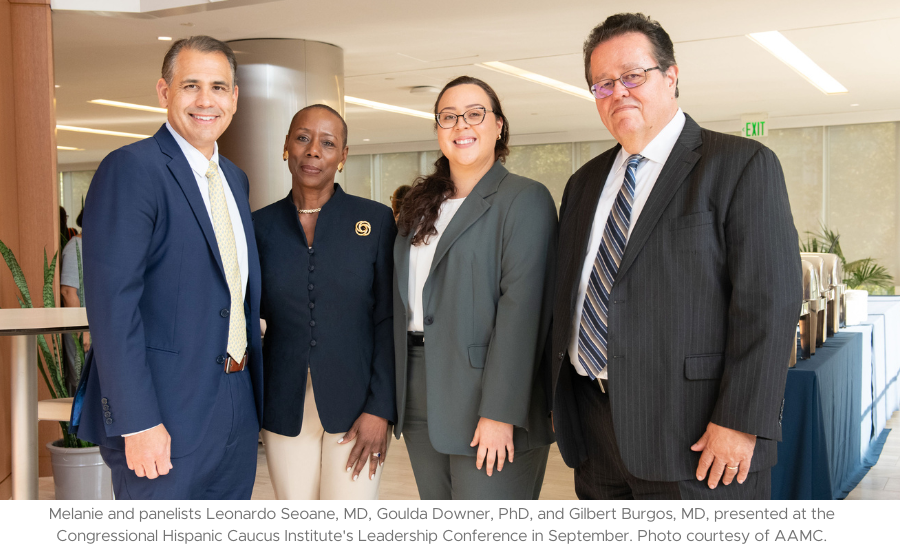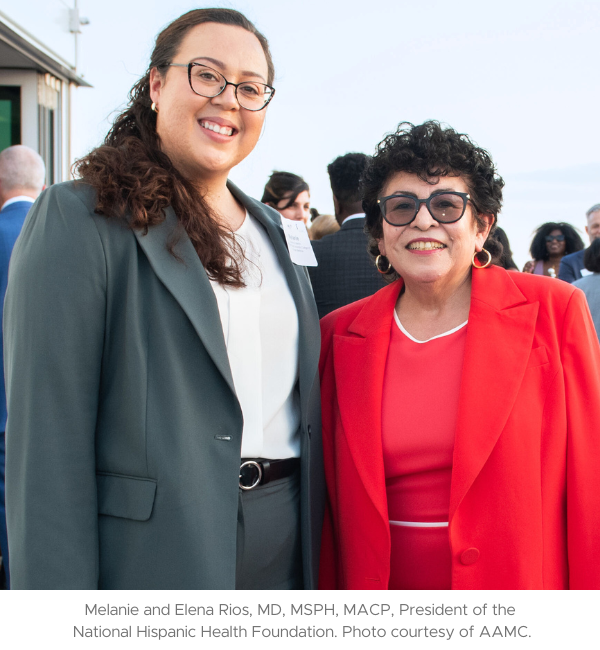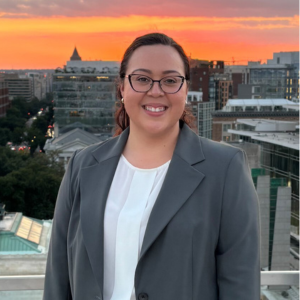Medical Student Melanie Valentin Receives AAMC ACE Award for Advocacy, Collaboration, and Education
September 24, 2024
As a child of immigrants, Melanie Valentin got a first-hand lesson in how language can be a barrier to proper health care. She saw her grandparents, who spoke only Spanish, struggle to communicate with physicians who spoke only English.
That realization set Valentin, a fourth-year College of Human Medicine student, on a course to become a doctor herself, an advocate to improve care for minorities, and an activist for a more diverse medical workforce.
In recognition of her work, the Association of American Medical Colleges on Sept. 11 presented Valentin one of its four annual ACE Awards for Advocacy, Collaboration, and Education at its Washington, DC, headquarters. Of the four, Valentin was the only medical student. Two (Henri R. Ford and Elena Rios) are doctors, and one (Joyce Beatty) is a U.S. Representative from Ohio.
“I was shocked to hear I would receive the award when they contacted me,” said Valentin, adding that “it was a great opportunity to meet a lot of great people and talk about what I had worked on.”
Based on the Flint Campus, Valentin sees some of the same health disparities as she did in Southern California, where her mother emigrated from Mexico and her father moved from Puerto Rico.
 “I think especially what I see are socioeconomic disparities,” she said, as well as “disparities in educational opportunities.”
“I think especially what I see are socioeconomic disparities,” she said, as well as “disparities in educational opportunities.”
She enrolled in the college’s Leadership in Medicine for the Underserved program and served as the health advocacy and policy chair for the National Latino Medical Student Association (LMSA) from 2023-24.
When a member of Congress introduced a bill to prohibit medical schools that receive federal funding from adopting policies related to diversity, equity, and inclusion (DEI), Valentin swung into action. She organized a summit of medical students from around the country to lobby for policies and bills that support diversity of the health care workforce and increase access to care for marginalized communities. The anti-DEI bill has not passed.
“We wanted our voices to be heard and let them know what this bill would do,” she said. “I’m not going to say it was easy, but with a little opposition, we did what we could do. I’ve really found my passion in this.”
Fewer than 6 percent of physicians in this country are Latinos, which can create language and cultural barriers and lead to inferior care, Valentin said.
“The ability to connect linguistically and culturally allows patients to feel comfortable,” she said. “These are the most vulnerable times in a person’s life.”
 When she enters an examination room, she often introduces herself in Spanish, and “I see a light in their eyes. For me, that’s a learning process, knowing what my grandparents put up with.”
When she enters an examination room, she often introduces herself in Spanish, and “I see a light in their eyes. For me, that’s a learning process, knowing what my grandparents put up with.”
Valentin has applied for family medicine residency programs and eventually plans to return to her Southern California community.
“I feel that is always where my heart has been,” she said. “As physicians, our purpose is to help people lead healthier lives. That kind of work can’t be done just inside the clinic. A lot of times I think this kind of advocacy work can prevent people from getting sick.”


